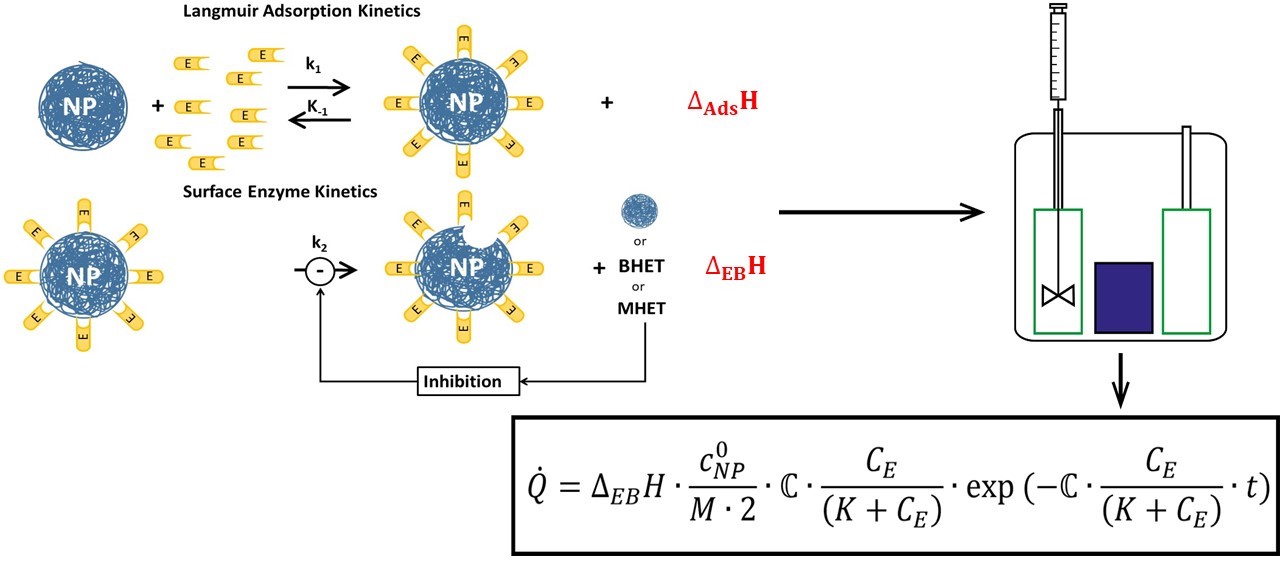Sensor technology
Plastic materials not only contribute to environmental pollution but can also be viewed as potential resources for future recyclables. To tap into these resources, the utilization of novel, non-invasive sensors capable of real-time monitoring of the conversion process, along with numerical models, becomes essential. These models, when combined with the sensors (referred to as soft-sensors) should enable the effective control of conversion processes on a technical scale.
Our contribution focusses on the advancement of thermal sensors, utilizing technologies such as based on the Peltier effect, in conjugation with thermodynamic and kinetic models. By incorporating thermodynamics, we anticipate an enhanced predictive capability of our models. The development of optimal thermal sensors suitable for the technical scale will be facilitated through the use of 3-D finite element simulations.
The catalysts employed encompass bacteria, fungi, and enzymes derived from both biological groups. Collaborative projects also explore enzyme optimization techniques, including rational design, directed evolution, and protein engineering.
Projects
Contributing scientists
Thomas Maskow
Dietmar Schlosser
Hermann Heipieper
Noelia Fernandez Merayo
 Sensor technology
Sensor technology
Publications
[1] Kristina Vogel, Ren Wei, Lara Pfaff, Daniel Breite, Hassan Al-Fathi, Christian Ortmann, Irina Estrela-Lopis, Tom Venus, Agnes Schulze, Hauke Harms, Uwe T. Bornscheuer, Thomas Maskow (2021) Enzymatic degradation of polyethylene terephthalate nanoplastics analyzed in real time by isothermal titration calorimetry, Science of the total environment 7773: 145111
[2] Christian Fricke, Toralf Klee, Sven Richter, Sven Paufler, Hauke Harms, Thomas Maskow (2021) Numerical heat flow and transport simulation as a development tool for the design of isothermal microcalorimeters. Thermochimica Acta 706: 179070
